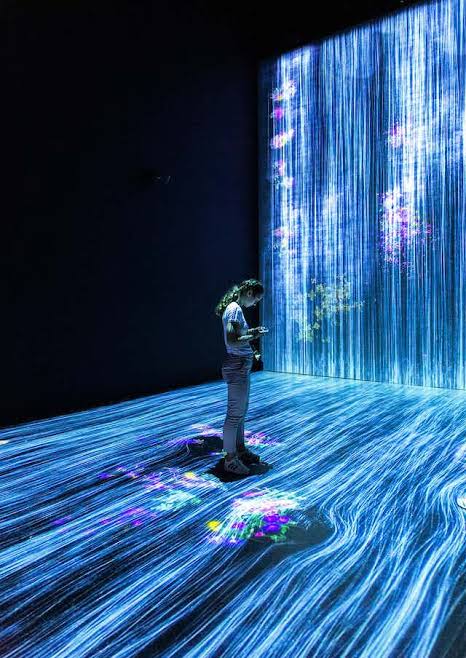Breaking Down The Simulation Theory | Are We Living in a Computer-generated Reality
The notion of the Simulation Theory captivates the minds of philosophers, scientists, and enthusiasts alike, questioning the very nature of our existence. In this article delight, we will delve deep into Breaking Down The Simulation Theory. We will try to explore its origins, key arguments, and the profound implications it holds for our understanding of reality.
What is The Simulation Theory | Understanding Simulation Theory
Simulation theory says that we are all likely living in an extremely powerful computer program (think The Matrix). It sounds far-fetched, but Swedish philosopher Nick Bostrom showed in 2003 that it’s more probable than one might think.
Bostrom’s seminal paper titled “Are You Living in a Computer Simulation?” ( Read the complete paper here https://www.simulation-argument.com/simulation ) explains that future generations might have mega-computers that can run numerous and detailed simulations of their forebears, in other words “ancestor simulations,” in which simulated beings are imbued with a sort of artificial consciousness. Odds are, we are products of that simulation.
In his influential paper that laid out the theory, Bostrom showed that at least one of three possibilities is true:
1) All human-like civilizations in the universe go extinct before they develop the technological capacity to create simulated realities
2) if any civilizations do reach this phase of technological maturity, none of them will bother to run simulations
or ,
3) advanced civilizations would have the ability to create many, many simulations, and that means there are far more simulated worlds than non-simulated ones.
We can’t know for sure which of these is the case, Bostrom concludes, but they’re all possible — and the third option might even be the most probable outcome. It’s a difficult argument to wrap your head around, but it makes a certain amount of sense.
The simulation hypothesis is the modern equivalent of an idea that’s been around for a while, and it is the idea that the physical world that we live in, including the Earth and the rest of the physical universe, is actually part of a computer simulation.
If we live in a computer simulation, who is the programmer?
Perhaps one we mortals might consider a god of some sort , though not necessarily in the traditional sense. The theory suggests that our reality is a simulated construct created by advanced beings. Or, entities that exist outside of our simulated universe. These entities could be highly advanced future humans, extraterrestrial civilizations, or even higher-dimensional beings. However, since this theory is speculative , we cannot definitively determine the true identity of the programmer, if one indeed exists.
How Would Simulated Reality Work?
What AI is to the movie The Terminator, simulation theory is to the movie The Matrix, which depicts a post-apocalyptic world in which a race of machines have captured most of humanity and imprisoned their minds within an artificial reality known as “the Matrix”. In the film, humans going about their everyday lives didn’t realize they were actually living in a simulation.
Bostrom argued in his 2003 paper that if humans are able to survive thousands of years to reach a “posthuman state” — one in which we have “acquired most of the technological capabilities” consistent with physical laws and material and energy constraints, it’s likely they would have the capabilities to run ancestral simulations.
Why Does Simulation Theory Matter?
We might be wondering, why does any of this matter? What is the purpose of proving or disproving that life as we know it is merely a digital construct and existence simply an immensely complex experiment in someone’s virtual terrarium? The broad answer is that which all good science pursues “Truth”.
Simulation theory encourages us to think beyond our immediate reality and consider the possibility of higher dimensions, alternate realities, and the interconnectedness of simulated universes. It pushes the boundaries of our understanding and encourages open-mindedness in exploring the mysteries of existence.
Is simulation theory a way to shirk responsibility for the world we’ve created?
While breaking down the simulation theory offers an alternative perspective on reality, it does not absolve us from our individual and collective responsibilities as human beings. The theory does not directly address or negate the consequences of our actions within this reality. As a integral part of this cosmos, we still bear the moral and ethical responsibility for our choices, behaviors, and their impact on the environment, society, and future generations.
Final Takeaway | Breaking Down The Simulation Theory
The more we uncover the mysteries behind this thought-provoking theory , the more we contemplate the possibility of living in a computer-generated simulation. Simulation theory challenges our perception of reality and prompts us to question the nature of existence. Breaking Down The Simulation Theory raises intriguing metaphysical questions about the nature of our universe and our place within it. Recognizing our accountability can empower us to make positive contributions to the world we inhabit, regardless of whether it is simulated or not.
Read also: What Happens During Brahma Muhurta | The Secret Potential Of Brahma Muhurta ( https://thebrightdelights.com/what-happens-during-brahma-muhurta-the-secret-potential-of-brahma-muhurta/ )
